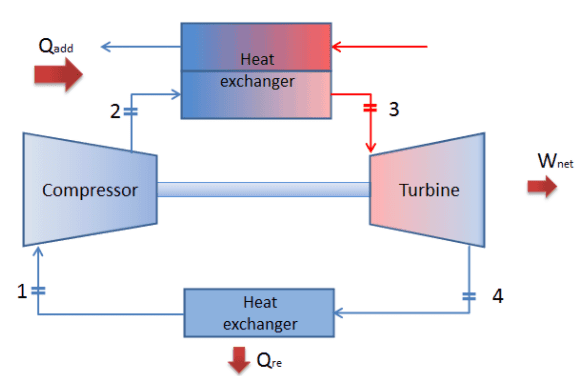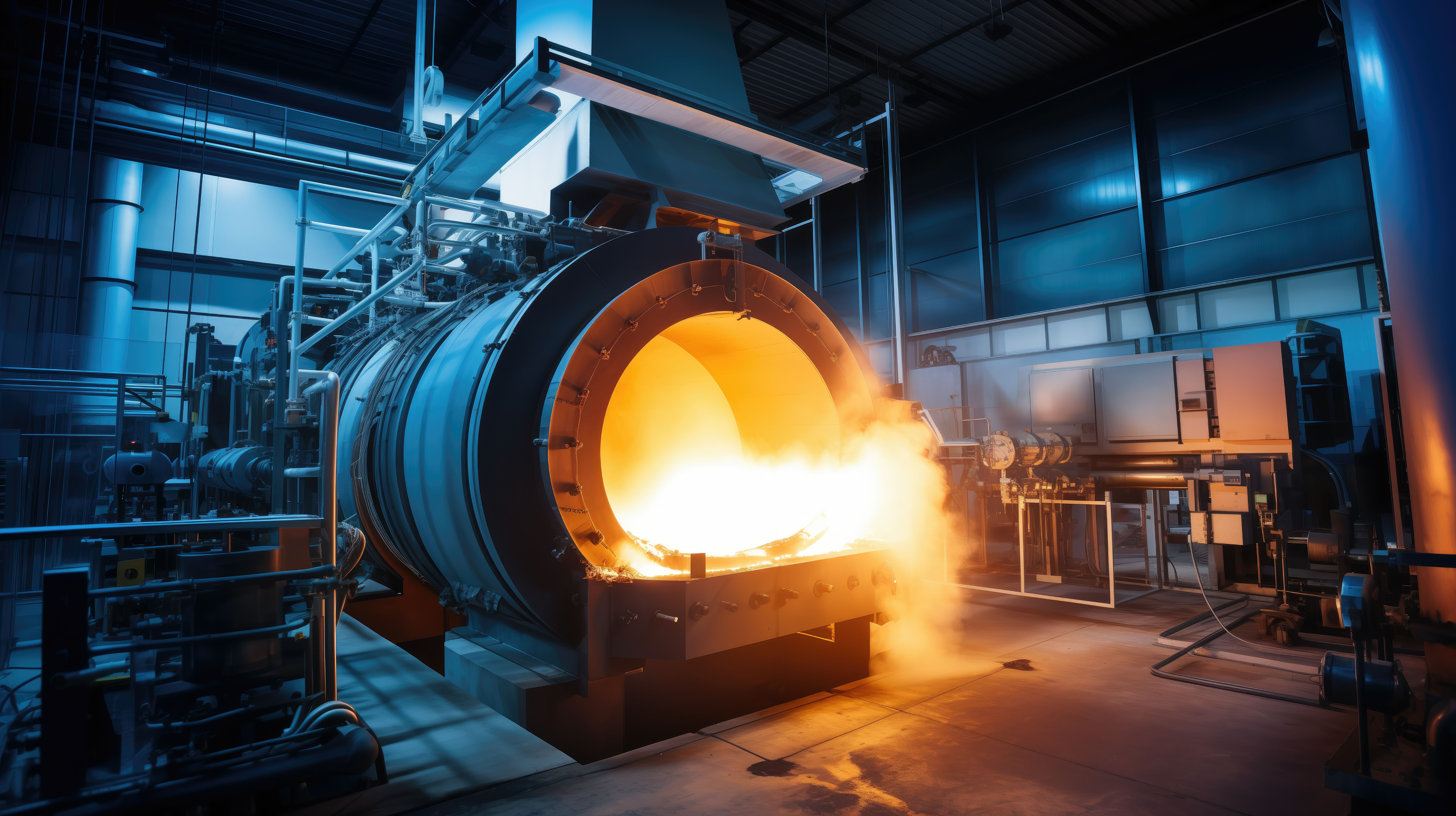
Projet REVCO2
Développement et optimisation d’un cycle de Brayton au CO2
supercritique REVersible pour la récupération de chaleur fatale

Projet coordonné par CENTRALE LYON
Durée de 4,5 ans
2 millions d’euros de budget
Thèses
Contexte et enjeu
Les cycles Brayton à CO2 supercritique (sCO2) sont apparus comme une solution prometteuse pour atteindre un rendement élevé et une flexibilité accrue dans diverses applications. Les nombreux avantages des cycles de puissance sCO2 comprennent un rendement élevé, une taille compacte des équipements et leur applicabilité non seulement aux réacteurs nucléaires de nouvelle génération, mais aussi à l’exploitation des sources de chaleur industrielle résiduelle.
Objectifs scientifiques
Dans le cadre du projet REVCO2, quatre laboratoires de recherche (CETHIL, Lafset, LMFA et LUSAC) mettront en commun leur expertise afin de développer entièrement, y compris la conception et l’optimisation des sous-systèmes, un cycle Brayton sCO2 réversible polyvalent destiné à récupérer la chaleur industrielle résiduelle.
Les obstacles technologiques suivants, qui entravent la diffusion à grande échelle de cette technologie, seront abordés :
1. le comportement instable du système lorsqu’il est soumis à une source de chaleur intermittente (comme c’est souvent le cas dans le contexte de la récupération de chaleur résiduelle) ;
2. la conception efficace du sous-système de transfert de chaleur dans la zone thermodynamique critique ;
3. la conception optimale globale d’une turbomachine pour un cycle Brayton réversible à CO2 supercritique pouvant être utilisé pour stocker la chaleur pendant les périodes de surproduction d’électricité du réseau et
4. la conception d’un système de stockage de chaleur efficace lorsque le cycle est utilisé en sens inverse.
En collaboration avec les autres participants, le CETHIL identifiera les conditions de fonctionnement pertinentes pour le cycle Brayton réversible au sCO2 couvrant un large éventail d’applications industrielles : processus de valorisation de la chaleur à haute température par pompe à chaleur à haute température de refoulement (> 200 °C), configurations « Power-to-Heat-to-Power » (électricité-chaleur-électricité) pour tirer parti des variations de prix du réseau afin de fournir de l’électricité et de la chaleur au processus au moindre coût tout en offrant une flexibilité de service au réseau.
Dans ce contexte, Lafset se concentrera sur la conception, l’optimisation et les essais expérimentaux des composants d’échange thermique, en mettant l’accent sur le comportement thermique complexe proche du point critique du CO2. Des mélanges à base de CO2 (avec du propane, par exemple) seront également envisagés afin de réduire les pressions de fonctionnement tout en maintenant des performances optimales.
En collaboration avec ses partenaires, LUSAC se concentrera sur la gestion et le stockage de l’énergie du système pour le cycle de Brayton direct et inverse. Les stratégies de stockage et de conversion de l’énergie seront analysées afin de garantir une gestion efficace de l’énergie du système. Au cours de cette phase du projet, des technologies de stockage innovantes seront étudiées afin de définir la conception optimale d’un système de stockage de chaleur à batterie thermique. Des recherches expérimentales seront menées en vue de l’intégration dans le système et des mesures seront utilisées pour valider le modèle numérique et améliorer l’efficacité.
LMFA se concentrera sur la conception globale des étages de turbomachines. Les étages du compresseur et de la turbine supercritiques seront d’abord conçus à l’aide d’un outil de conception de turbomachines sur mesure basé sur les principes fondamentaux. Lors d’une deuxième étape de validation, des simulations haute fidélité seront utilisées grâce à une méthode de Lattice Boltzmann (LBM) spécialement conçue pour les écoulements compressibles et supercritiques de gaz réels. Associés à l’approche Reynolds-Averaged Navier Stokes (RANS), ces trois niveaux de fidélité différents seront combinés dans une procédure d’optimisation multifidélité afin d’optimiser la conception globale des étages de la turbomachine.
Une fois la conception complète disponible, une analyse des perturbations de l’ensemble du cycle thermodynamique sera envisagée par tous les partenaires du projet REVCO2 afin de recueillir des données sur le comportement du système en dehors des conditions nominales et dans le cas inverse.
À partir de ces données, une carte des performances couvrant différentes températures de fonctionnement et différentes charges partielles sera générée par le CETHIL sur la base d’une approche d’apprentissage automatique. Le modèle réduit sera utilisé pour optimiser la conception du système complet dans des conditions représentatives des applications ciblées : les critères thermo-économiques estimés à partir d’une analyse exergétique avancée seront minimisés.
Le consortium



